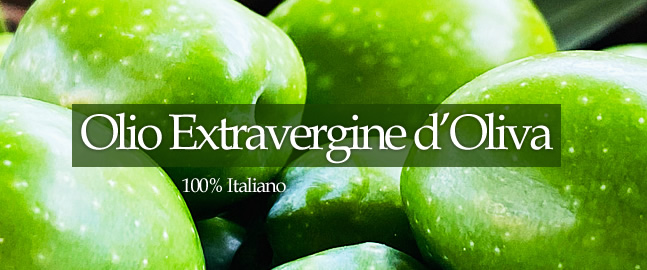EVO Oil - Thousand-Year History and Origins in the Mediterranean Area
 The search for the origins of olive cultivation in the Mediterranean area takes us back 6,000 years.
The search for the origins of olive cultivation in the Mediterranean area takes us back 6,000 years.The reference to the olive tree occurs frequently in religious texts, traditional tales and mythological legends according to which the
olive was first planted in Attica, by Athena, on the Acropolis of Athens.
In Hellenic culture, olive trees were considered sacred and it was forbidden to burn their wood, while severe penalties were imposed on those who damaged them. According to the Bible, a dove announced the end of the flood to Noah through an olive branch.
In the 8th century BC. the Greeks introduced to Sicily the cultivation of this wonderful tree with "precious fruits" from which for millennia the only and undisputed oil of vegetable origin used in the Mediterranean diet was extracted, so indispensable to the point of making the olive tree the symbol of this area.
It has found on the island the ideal climate for healthy and luxuriant growth; the extreme heterogeneity of the soils present in this "ancient land" (hilly, sandy, lava, sedimentary, clayey, calcareous, etc.) and the different microclimates that pervade it, have allowed a millenary natural selection in Sicily that allows us to identify today at least sixteen different native olive cultivars.
There are 16 cultivars in Sicily
The only natural adversities not tolerated by the olive tree are water stagnation and frost; for the rest it manages to adapt perfectly even to the most critical conditions. Thanks to the extreme climatic heterogeneity and the countless compounds that make up the cultivated surfaces, Italy is the nation with the most varied olive growing heritage in the world, managing to include over 500 varieties which over time have developed in well-defined areas.
From the combination of the various cultivars and the geographical microclimates, characteristics are obtained which clearly distinguish some oils and denote specific peculiarities.
The most widespread varieties in Sicily are certainly the cultivars
Biancolilla, Cerasuola, Moresca, Nocellara del Belice, Nocellara Etnea, Oglialora Messinese, Santagatese, Tonda Iblea which, together, make up 80% of all olive trees grown in Sicily. In particular, in the territories included in the municipalities of Castelvetrano, Campobello di Mazara and Partanna, where the variety
Nocellara is grown almost entirely del Belice which has boasted the Protected Designation of Origin for many years and which lends itself to the dual role of table olive and oil olive.
Health properties of EVO oil
Olive oil is a precious food in the so-called "Mediterranean diet", both for its countless beneficial actions on our body and for its organoleptic qualities. From the
Nocellara del Belice an oil with a thousand-year history is extracted, with a high content of oleic acid, a monounsaturated acid which belongs to the family of omega-9 fatty acids which are very important for human health as they stimulate the creation of hormones, produce energy and make up cell membranes.
Regular consumption of Nocellara oil ensures a balanced intake of omega-9 which contributes to reducing the risk of cardiovascular diseases, increases our energy, helps improve mood (and is therefore good for the heart and the brain) and generate general well-being in the organism.
Castelvetrano: Area of Excellence Suitable for the Production of EVO Oil and Table Olives
The municipality of
Castelvetrano, in the province of Trapani, develops in the area delimited by the Delia and Belice rivers. Precisely this last river, which flows a few kilometers from the thousand-year-old city of Selinunte, gives rise to an extensive valley with pedoclimatic conditions unique in the world which give the oil produced by the
Nocellara del Belice absolute peculiarities that are not present in other varieties. These characteristics outline a superior quality oil, especially if a certified cold pressing system is adopted, i.e. when the temperature of 27° C is never exceeded during the entire extraction process. In the production of extra virgin olive oil, only mechanical cold extraction processes, as the use of any other method would inevitably lead to the forfeiture of the denomination of EVO oil.
Nocellara del Belice cultivar
Nocellara del Belice is an olive tree cultivar that is produced in western Sicily, in particular in the Belice Valley area. The plant of the Nocellara del Belice cultivar is medium vigorous with fairly large foliage. From the Nocellara del Belìce cultivar, we cold extract our extra virgin oil. One of its great qualities is that it is a dual-purpose olive: it can be pressed and transformed into exquisite extra virgin olive oil or it can be enjoyed at the table in many ways and on occasions. When harvested in October it has a beautiful green color and crunchy pulp and is produced by pressing healthy olives, i.e. harvested from the tree, correctly piled up, pressed within 18 hours of harvesting in boxes. Its organoleptic characteristics make it, in the opinion of experts, one of the most prized table olives in the world. It can come in different sizes and have a beautiful intense green color, which turns wine red when ripe. The pulp is crunchy and easily detaches from the stone. The flavor is pleasantly sweet and sour, savory with a subtle hint of bitterness, which varies according to the type of processing.
Data:06-11-2023
In
OilEvo Oil Nocellara Del Belice Asta Oil Castelvetrano Belice  The search for the origins of olive cultivation in the Mediterranean area takes us back 6,000 years.
The search for the origins of olive cultivation in the Mediterranean area takes us back 6,000 years.